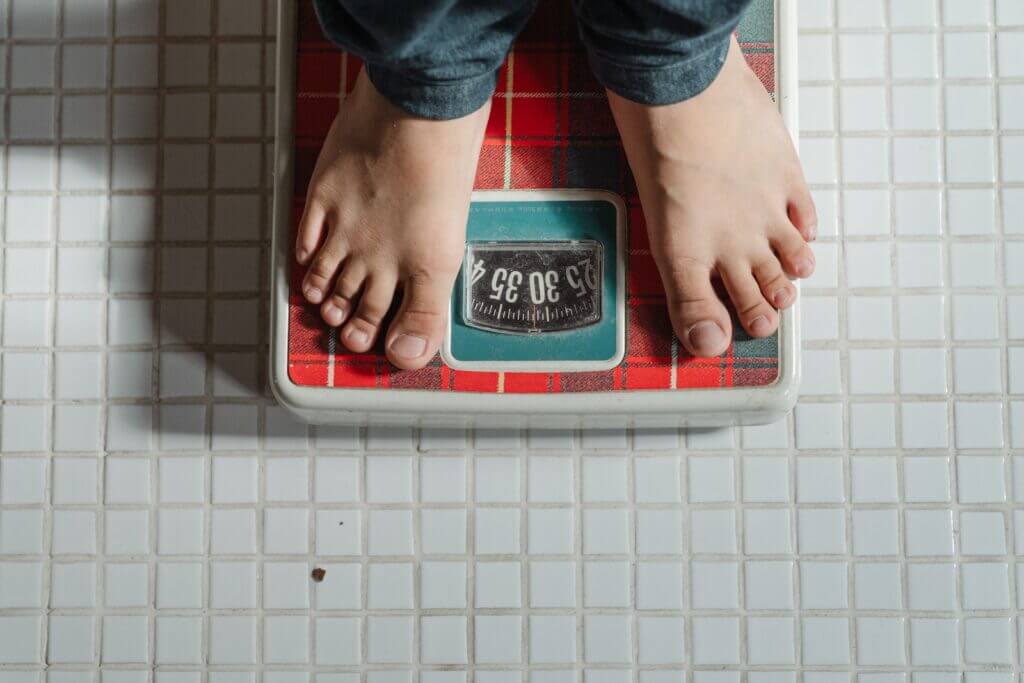Imagine tying your laces tight, stepping into the fresh air, and embarking on a journey that spans 6 miles—every day. This commitment, daunting as it may appear, unfolds a path of transformation and discovery.
Diving into the world of running 6 miles a day, we uncover the vast landscapes of physical resilience and mental fortitude it cultivates. Through sweat, persistence, and the rhythmic beat of your feet against the ground, running 6 miles a day becomes more than just exercise; it’s a journey into the depths of what you’re truly capable of.
Join us as we explore the intricate tapestry of benefits and challenges woven by this daily practice, revealing the profound impact it can have on your life.
Table of Contents
How Long Does It Take To Run 6 Miles?

The time it takes to run 6 miles can vary widely depending on a few key factors: your pace, fitness level, and the terrain you’re running on.
For a beginner, running at a comfortable, conversational pace might mean completing a mile in about 10 to 12 minutes. So, for 6 miles, you’re looking at approximately 60 to 72 minutes of running.
More experienced runners, however, might clock in at around 8 minutes per mile or even faster, which would reduce the total time for 6 miles to around 48 minutes or less. Remember, it’s not just about speed; it’s about consistency and enjoying the journey.
If you’re running on hilly terrain, expect to add a few minutes to your time. Hills are great for building strength but can slow you down as you climb.
Related: Running 7 miles a day
Is Running 6 Miles A Day Good For You? 5 Benefits
Starting your day with a 6 mile run might sound like a big leap, but it’s one that can lead to some amazing changes in your life. From your heart to your mind, let’s look at how this daily habit can make a real difference:
Heart Health
Running strengthens your heart, enhancing its ability to pump blood efficiently. This regular cardiovascular exercise can significantly lower the risk of heart disease. Imagine your heart becoming stronger and more resilient with each mile.
Weight Management
On average, running burns about 100 calories per mile. Therefore, running 6 miles a day could see you burning approximately 600 calories, aiding significantly in weight control or loss. Combined with healthy eating, it’s a robust strategy for maintaining a healthy weight.
Mental Well-being
The mental health benefits of running are well-documented. Engaging in this daily activity can decrease stress, anxiety, and symptoms of depression thanks to the increased production of endorphins, your body’s natural mood lifters.
Sleep Quality
Regular runners often enjoy better sleep quality, falling asleep faster and sleeping more deeply. Good sleep is essential for recovery, mood regulation, and overall health, making running a great ally in achieving restful nights.
Improved Endurance and Stamina
Running 6 miles daily builds endurance, gradually making activities that once were challenging feel more accessible. This increased stamina translates to more energy and easier completion of everyday tasks.
Jumping into a routine of running 6 miles every day is a commitment that comes with its own set of considerations. While running is packed with benefits, it’s also important to weigh the potential downsides for a balanced view.
Read: Running 20 miles a day
Is Running 6 Miles A Day Bad For You?

Running 6 miles a day can be an incredible way to boost your health, but like anything, it’s all about balance. Let’s explore whether this routine could be too much of a good thing and how to keep it beneficial.
Risk of Overuse Injuries
One of the primary concerns with running this distance daily is the risk of overuse injuries. Your muscles, joints, and bones need time to recover from the stress of running. Without proper rest, you might face issues like shin splints, stress fractures, or runner’s knee.
Impact on Mental Health
While running is often a mental health booster, setting a rigid daily goal of 6 miles can, for some, lead to burnout or an unhealthy obsession with exercise. It’s important to maintain a flexible approach and remember that it’s okay to take a day off when needed.
Possible Cardiovascular Stress
For individuals with existing heart conditions or those who might be pushing too hard without adequate fitness levels, running extensive distances daily could put unnecessary stress on the heart.
It’s wise to consult with a healthcare provider before starting any intense exercise regimen.
Nutritional Deficiencies
Running long distances regularly increases your body’s needs for nutrients, particularly if you’re not adjusting your diet to meet these increased demands. This can lead to deficiencies that impact energy levels, recovery, and overall health.
Read: How many miles is a 10k?
Running 6 Miles a Day for Weight Loss

Yes, running 6 miles a day can be a highly effective way to lose weight. Running burns a significant number of calories, which can help create the calorie deficit needed for weight loss.
On average, running burns about 100 calories per mile. So, running 6 miles a day could burn around 600 calories, depending on factors like your weight and pace.
However, losing weight isn’t just about exercise; your diet plays a crucial role. To see weight loss results from running 6 miles a day, it’s important to pair this routine with healthy eating habits.
Let’s consider two examples, one for a woman weighing 140 pounds and a man weighing 180 pounds, to illustrate how running 6 miles a day can impact weight loss for individuals of different weights.
For a woman weighing 140 pounds:
- On average, a person of this weight burns approximately 100 calories per mile. Running 6 miles would therefore burn about 600 calories.
- If she runs 6 miles a day and maintains a balanced diet without consuming extra calories, she could create a significant calorie deficit over time, leading to weight loss.
For a man weighing 180 pounds:
- A person of this weight typically burns slightly more calories per mile due to the increased energy required to move a larger body mass. Let’s estimate about 115 calories per mile.
- Running 6 miles a day, he would burn approximately 690 calories.
- Similarly, if he combines this routine with a healthy diet, avoiding extra calorie intake, he can achieve a notable calorie deficit, contributing to weight loss.
These examples show that regardless of gender or starting weight, running 6 miles a day can significantly contribute to weight loss when paired with a mindful approach to nutrition.
Read: Running 10 miles a day
How to Prepare for a 6 Mile Run?

Getting ready for a 6 mile run requires a mix of physical preparation, mental readiness, and practical steps to ensure you’re set up for success. Whether you’re a seasoned runner or aiming to hit this milestone for the first time, here’s how to gear up for the challenge.
Start with a Plan
Begin by establishing a running routine that gradually increases your distance. If you’re new to running, start with shorter distances, like 1 or 2 miles, and gradually add more miles each week. This approach helps build your endurance and reduces the risk of injury.
Focus on Nutrition
Your body needs the right fuel to power through a 6 mile run. Eat a balanced diet rich in carbohydrates, proteins, and healthy fats. About 1-2 hours before your run, have a light snack that’s high in carbs but low in fat and fiber to avoid stomach discomfort.
Stay Hydrated
Proper hydration is key. Drink water throughout the day leading up to your run, and consider bringing a small water bottle with you, especially on hot days. Avoid drinking too much right before you start to prevent cramps.
Warm-Up and Cool Down
A good warm-up prepares your muscles and reduces the risk of injury. Spend 5-10 minutes doing dynamic stretches or a brisk walk before you start running. After you finish, cool down with a slow jog or walk, followed by static stretches to help your muscles recover.
Wear Proper Gear
Invest in a good pair of running shoes that provide support and cushioning. Wear moisture-wicking clothing to help keep you dry and comfortable throughout your run.
Listen to Your Body
Pay attention to how you’re feeling. It’s normal to experience some discomfort as you push your limits, but if you feel sharp pain or extreme fatigue, it’s okay to stop and rest. Running should be challenging, but not detrimental to your health.
Getting ready for a 6 mile run is about more than just running; it’s about gearing up for an adventure. With the right preparation, every step becomes a stride towards your personal best.
Read: Running 8 miles a day
Running 6 Miles a Day Transformation
Discover the transformative power of running through a video highlighting one man’s journey of running 6 miles daily for 30 days.
Witness his remarkable physical and mental evolution, showcasing the profound effects of consistent dedication. A true inspiration for anyone looking to make a change.
Final Thoughts
Diving into the challenge of running 6 miles a day opens up a world of benefits—stronger heart, better weight management, improved mental health, deeper sleep, and boosted stamina.
Yet, it’s a journey that calls for balance. Listening to your body, pacing yourself, and enjoying every step are key. This isn’t just about reaching a fitness goal; it’s about embracing a healthier, more joyful life.
Starting slow and staying consistent can transform this from a daunting task to an enjoyable daily ritual. So, why not take that first step today? Your adventure awaits, and the rewards are well worth the effort. Ready, set, go—discover where your feet can take you!
Frequently Asked Questions
Can I run a marathon if I run 6 miles a day?
Running 6 miles a day builds a strong foundation of endurance and stamina, which are crucial for marathon running.
However, marathons are 26.2 miles long, so you’ll need to gradually increase your distance over time to prepare your body for that challenge.
Including longer runs in your training plan, especially ones that get close to or match the marathon distance, will be essential.
How many calories does a 6 mile run burn?
The number of calories you burn during a 6 mile run depends on a few factors like your weight and running pace. On average, running burns about 100 calories per mile.
So, for a 6 mile run, you can expect to burn approximately 600 calories. This number will be higher for those who weigh more or run at a faster pace.
How many miles a day should you run a day?
The ideal number of miles to run each day varies based on your fitness goals, experience level, and health. For general fitness, running 3 to 5 miles a day can be sufficient.
If you’re training for longer races or specific goals, you might need to run more. Remember, rest days are just as important as running days to prevent injury and allow your body to recover.


